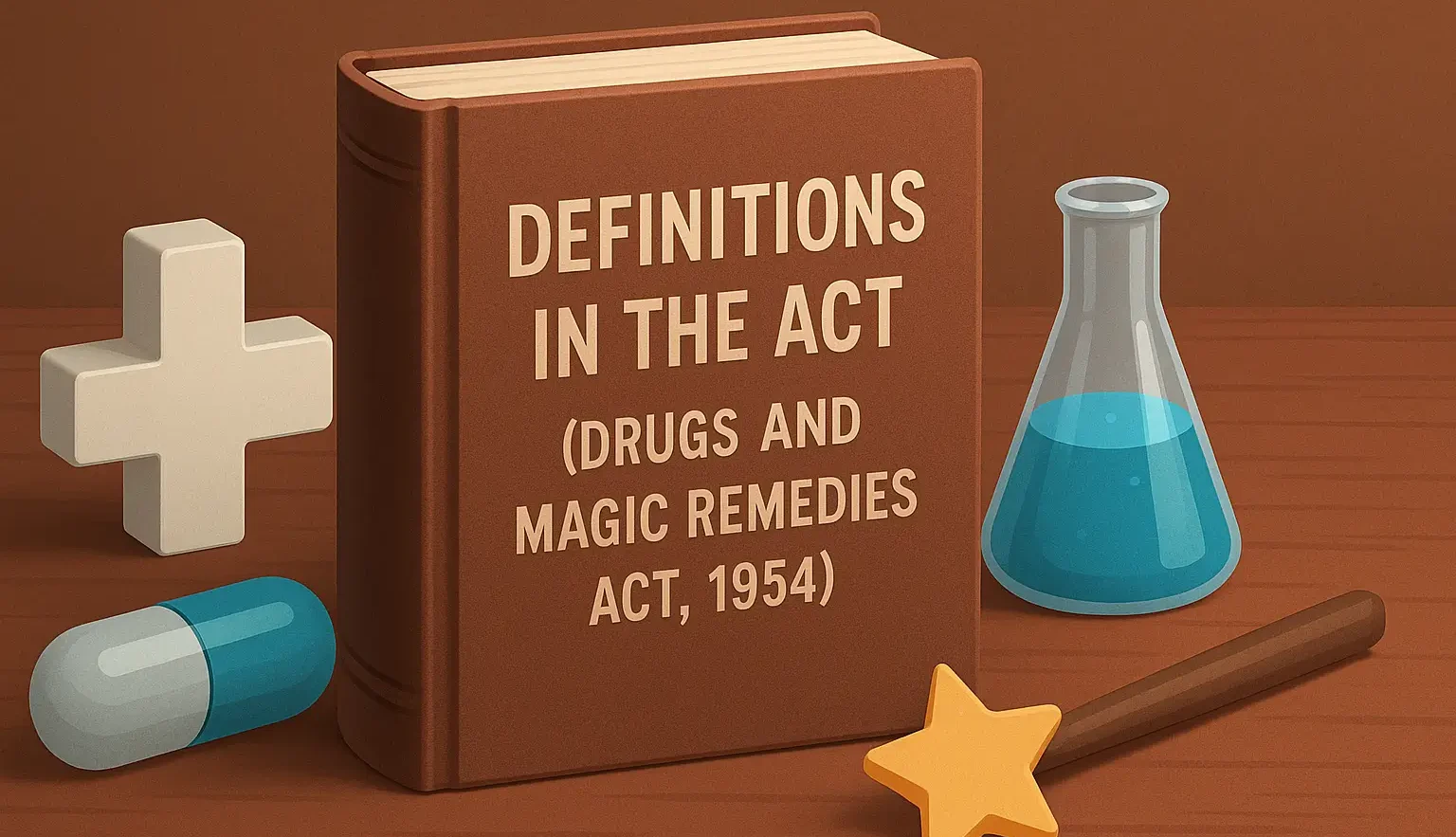This article explains about the key definitions in the Drugs and Magic Remedies Act 1954 that explain terms related to drugs magic remedies and advertisements.
Important Key Definitions (Section 2 of the Act):
-
Advertisement:
- It includes any representation—whether oral, written, or visual—that promotes or suggests the use of a drug or magic remedy for diagnosis, prevention, treatment, or cure of diseases.
- It covers advertisements in newspapers, magazines, posters, and other media forms.
-
Drug:
- Includes any medicine, substance, or preparation used for the treatment, prevention, or diagnosis of a disease.
- Also covers substances used to influence body functions (e.g., hormones, tonics).
-
Magic Remedy:
- Refers to any talisman, mantra, or charm claimed to have miraculous healing properties or supernatural powers to cure diseases.
- It includes objects, practices, or rituals that are claimed to have magical healing abilities.
-
Disease or Disorder:
- Includes any abnormal condition of the body, whether temporary or permanent, that affects physical or mental health.
- A detailed list of diseases and disorders is provided in the Act (Schedule).
Prohibited Advertisements
Prohibited Advertisements (Section 3):
The Act strictly prohibits advertisements related to drugs and remedies that claim to:
-
Treat or cure any of the diseases or conditions listed in the Schedule of the Act.
Examples of such diseases include:
- Cancer
- Diabetes
- Heart disease
- High blood pressure
- Epilepsy
- Sexual disorders
- Mental illnesses
-
Improve Sexual Strength or Performance:
- Advertisements for remedies claiming to improve potency or treat impotence, infertility, and menstrual disorders are banned.
-
Enhance Physical Appearance:
- Claims to alter height, weight, or skin complexion (such as fairer skin creams) are restricted.
-
Possess Magical Properties:
- Remedies claiming to have supernatural effects in curing diseases or disorders are prohibited.
-
Mislead Consumers:
- Advertisements containing false or exaggerated statements about the efficacy of a drug are banned.
-
Encourage Self-medication:
- Advertisements promoting drugs that lead to self-diagnosis and self-medication without consulting doctors are prohibited.
Key Example to Drugs and Magic Remedies Act 1954:
- An advertisement claiming that a specific oil can regrow hair in bald people is prohibited under this Act because it makes exaggerated claims without scientific backing.

